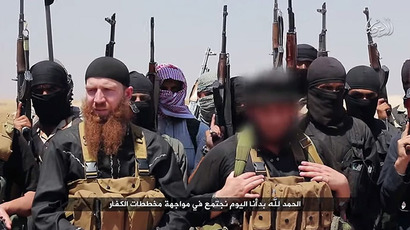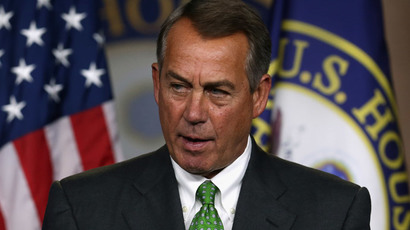ISIS neighbors have cold feet over US bombing plans
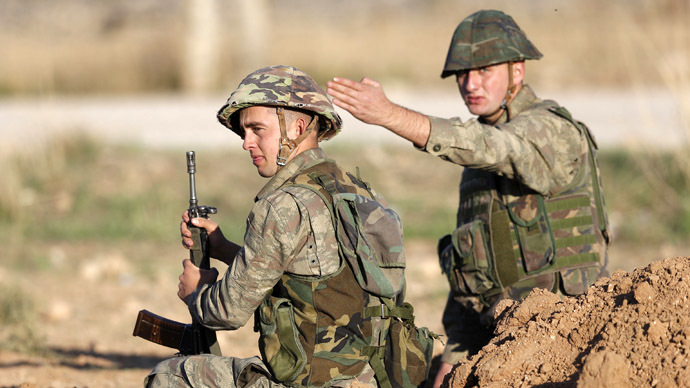
Key US allies, Turkey and Jordan, are thought to backing away from US calls for a 'bomb ISIS' coalition.
READ MORE: ISIS Fight Club: France is in while Germany not so willing
Ankara is a notable absentee among the nations that signed a joint communiqué at a Thursday meeting in Saudi Arabia, where US Secretary of State John Kerry was drumming up support for the US anti-Islamist effort. Turkey refused to join 10 Arab nations, who vowed to contribute “as appropriate” to the fight against the Islamic State (IS, formerly ISIS) militants, who have taken over swathes of Syria and Iraq in a bid to create a fundamentalist Islamist caliphate.
Turkey, a NATO member, borders both Syria and Iraq from the north, but it will not allow the US to use its facilities in operations against the IS, a government official in Ankara told AFP.
“Turkey will not be involved in any armed operation but will entirely concentrate on humanitarian operations,” the official said on condition of anonymity. He added that Ankara would not even supply weapons to whoever would fight against the IS.
The position is reminiscent of the 2003 US invasion of Saddam Hussein’s Iraq, when Turkey refused to allow the US station 60,000 in the country or use its airfields to launch sorties on Iraq.
The official explained that Turkey’s hands on the matter are tied because the IS militants hold hostage 49 Turkish citizens, including diplomatic staff and their families. The Turks were captured by the extremists in a consulate in Mosul, when the Iraqi city was captured in a lighting offensive in June.
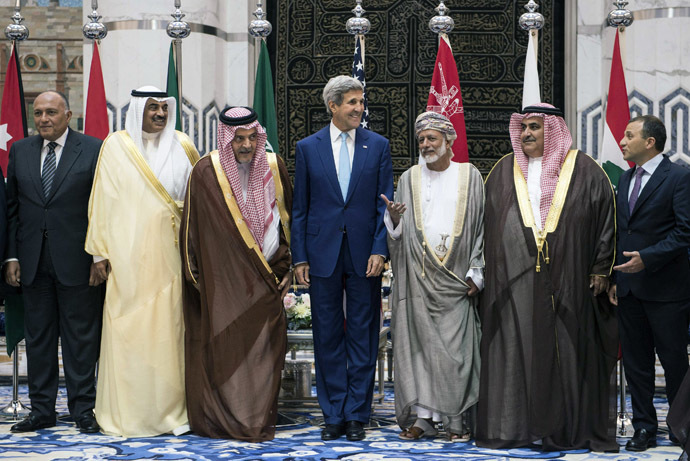
There is also a more strategic consideration for Ankara to weigh up amid the anti-IS campaign. The US and some European countries have started arming Iraqi Kurd militias, who found themselves one of the few armed forces on the ground that can fight back the Islamists.
Turkey fears that those weapons may end up in the hands of the Kurdistan Workers’ Party (PKK), an organization considered terrorist by Ankara due to its history of separatist violence in the country. The concerns were discussed with US Secretary of Defense Chuck Hagel, who held closed-door talks with Turkish officials on Monday.
The inflow of arms, which would be part of the US-led anti-IS campaign is a matter of concern for another neighbor of both Syria and Iraq, Jordan. The Arab ally of Washington is concerned with the plans to arm and train more fighters of the Free Syrian Army, a supposedly moderate militant force fighting against the Syrian government.
The planned ramp-up of support of the group is hoped to counterbalance the newfound strength of the IS. The FSA would then be able to fight against the IS as well as the Syrian government forces, the plan goes.
But the Syrian government is far from being sure that the FSA now is as moderate as Washington paints them to be, reports the World News Daily, a US conservative news website. The report cites a senior Jordanian security official as saying that Amman views the Syrian rebel group in its current state as ideologically close to extremists like the Al-Qaeda-linked Al-Nusra Front and the IS itself.
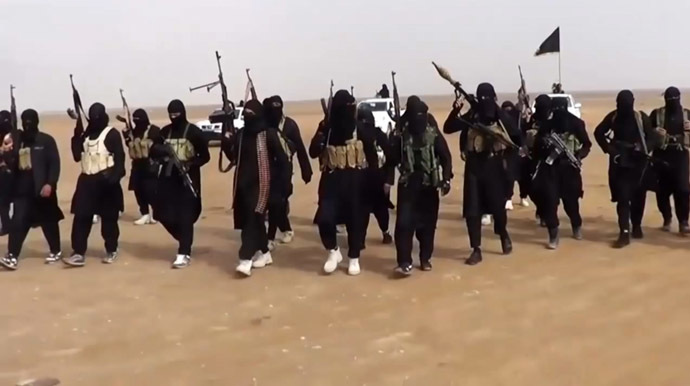
In addition to practical considerations, America’s plans raise legal questions. Washington said it may bomb the IS in Syria as well as in Iraq. While Baghdad invited and welcomed the military action in its territory, Damascus warned that it would treat any such move unsanctioned by the Syrian government as an act of aggression. Washington said it would not seek such permission.
A UN Security Council mandate might authorize military action in Syria despite the objections from Damascus, but obtaining one would require consent from Russia and China, who have veto power in the international security body. Russia already backed Syria’s concerns, saying that if a US airstrike happened to hit government forces, it would “have grave consequences in terms of escalation of tension.”












